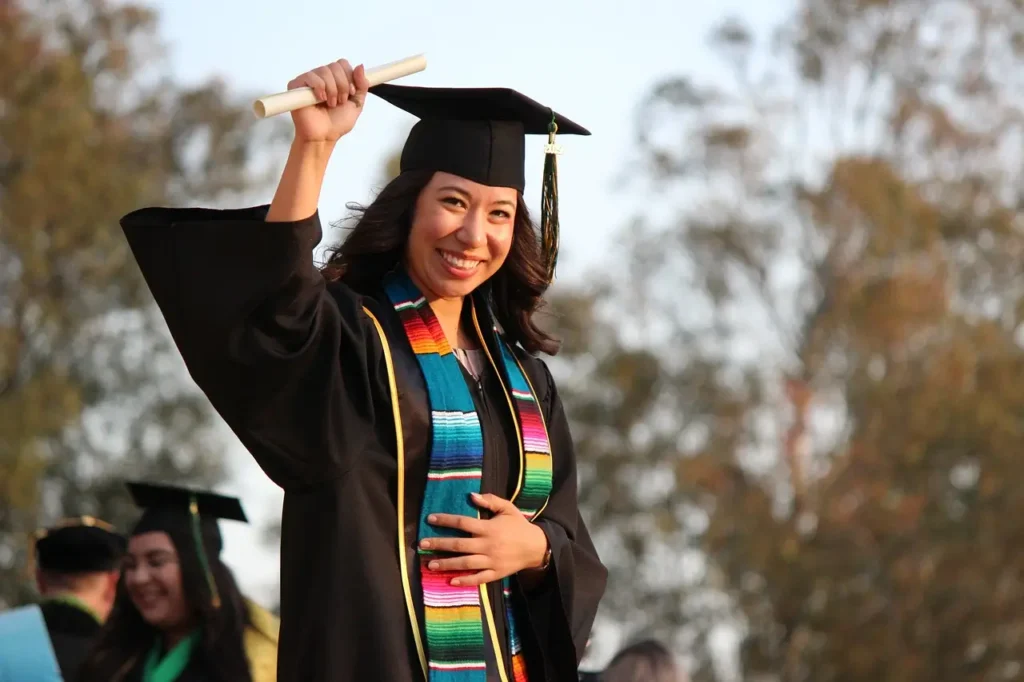Academic success is the ultimate goal for students studying abroad, but achieving it can be challenging in a new environment. Want to know the secrets to excelling in your studies while soaking up a different culture? This guide is packed with tips and tricks to help you stay ahead academically while enjoying your overseas adventure. Ready to make the most of your study abroad experience? Let’s dive in!
Achieving academic success while studying abroad involves more than just attending classes. It requires a combination of strategic planning, cultural adaptation, and effective study habits. Let’s explore some proven tips to help you thrive academically during your international journey.
Setting Clear Academic Goals
Defining Your Objectives
Start by setting clear, achievable academic goals. Whether it’s maintaining a certain GPA, mastering a new language, or completing specific projects, having clear objectives keeps you focused and motivated.
Creating a Study Plan
A well-structured study plan helps you allocate time effectively. Balance your academic commitments with extracurricular activities to ensure a well-rounded experience.
Embracing Cultural Differences
Adapting to New Educational Systems
Educational systems vary significantly from country to country. Take the time to understand the local academic expectations, grading systems, and teaching methods.
Learning from Cultural Diversity
Interacting with students from diverse backgrounds enriches your learning experience. Embrace different perspectives and use them to broaden your understanding of various subjects.
Effective Time Management
Prioritizing Tasks
With numerous distractions in a new country, effective time management is crucial. Prioritize your tasks and focus on completing high-impact assignments first.
Avoiding Procrastination
Procrastination is a common challenge for students. Break your tasks into smaller, manageable parts and set deadlines for each to stay on track.
Utilizing Campus Resources
Academic Advisors
Make the most of your academic advisors. They can provide valuable insights into course selection, academic policies, and career planning.
Libraries and Study Spaces
Campus libraries and study spaces are essential resources. Find a quiet place where you can focus and make use of available academic materials.
Developing Strong Study Habits
Active Learning Techniques
Engage in active learning techniques such as summarizing information, teaching others, and participating in discussions. These methods enhance retention and understanding.
Effective Note-Taking
Develop a note-taking system that works for you. Whether it’s the Cornell method, mind mapping, or digital notes, effective note-taking aids in comprehension and review.
Building a Support Network
Connecting with Professors
Establish a good rapport with your professors. They can offer guidance, feedback, and support throughout your academic journey.
Joining Study Groups
Study groups provide a platform for collaborative learning. Join or form study groups to share knowledge, resources, and study strategies.
Staying Healthy and Balanced
Maintaining Physical Health
A healthy body supports a healthy mind. Maintain a balanced diet, exercise regularly, and get adequate sleep to stay physically and mentally sharp.
Managing Stress
Studying abroad can be stressful. Practice stress management techniques such as mindfulness, meditation, and time for relaxation to maintain mental well-being.
Overcoming Language Barriers
Improving Language Skills
If you’re studying in a non-native language, improving your language skills is crucial. Take language courses, practice speaking with locals, and immerse yourself in the language.
Utilizing Language Support Services
Many universities offer language support services. Utilize these resources for help with academic writing, comprehension, and communication skills.
Leveraging Technology
Digital Tools for Learning
Use digital tools and apps to enhance your learning experience. Apps for note-taking, time management, and language learning can be particularly helpful.
Online Academic Resources
Access online academic resources such as e-books, journals, and educational websites. These resources provide additional study materials and research tools.
Real-Life Examples
Case Study: Anna’s Journey to Academic Excellence
Anna, an engineering student from Germany, struggled with time management initially. By setting clear goals and creating a detailed study plan, she improved her grades and successfully balanced her academics with cultural activities.
Case Study: Miguel’s Cultural Adaptation
Miguel, a student from Mexico, embraced cultural diversity by joining international student organizations. This not only helped him adjust to the new environment but also enriched his academic and social experiences.
Practical Tips for Academic Success
Regularly Review Course Material
Consistently reviewing your course material helps reinforce learning. Set aside time each week to go over your notes and readings.
Seek Feedback
Actively seek feedback from your professors and peers. Constructive criticism helps you identify areas for improvement and refine your academic skills.
Conclusion
Achieving academic success while studying abroad is a multifaceted endeavor that requires dedication, adaptability, and strategic planning. By setting clear goals, embracing cultural differences, managing your time effectively, and utilizing available resources, you can excel academically and make the most of your international education experience.
FAQs
How Can I Improve My Time Management Skills?
Improving time management skills involves setting clear priorities, creating a structured study plan, and breaking tasks into manageable parts. Use digital tools and apps to help organize your schedule and stay on track.
What Should I Do If I Struggle with Language Barriers?
If you struggle with language barriers, consider taking additional language courses, practicing with native speakers, and utilizing language support services provided by your university. Immersing yourself in the language through daily interactions also helps improve proficiency.
How Can I Balance Academic Work with Extracurricular Activities?
Balancing academic work with extracurricular activities requires effective time management and prioritization. Create a schedule that allocates time for both academics and leisure activities, ensuring you maintain a healthy balance.
What Resources Are Available for International Students?
International students have access to various resources, including academic advisors, libraries, study spaces, language support services, and student organizations. Make use of these resources to enhance your academic and social experience.
How Can I Manage Stress While Studying Abroad?
Managing stress involves practicing mindfulness, meditation, regular physical exercise, and maintaining a balanced lifestyle. Seek support from friends, family, and university counseling services when needed.



